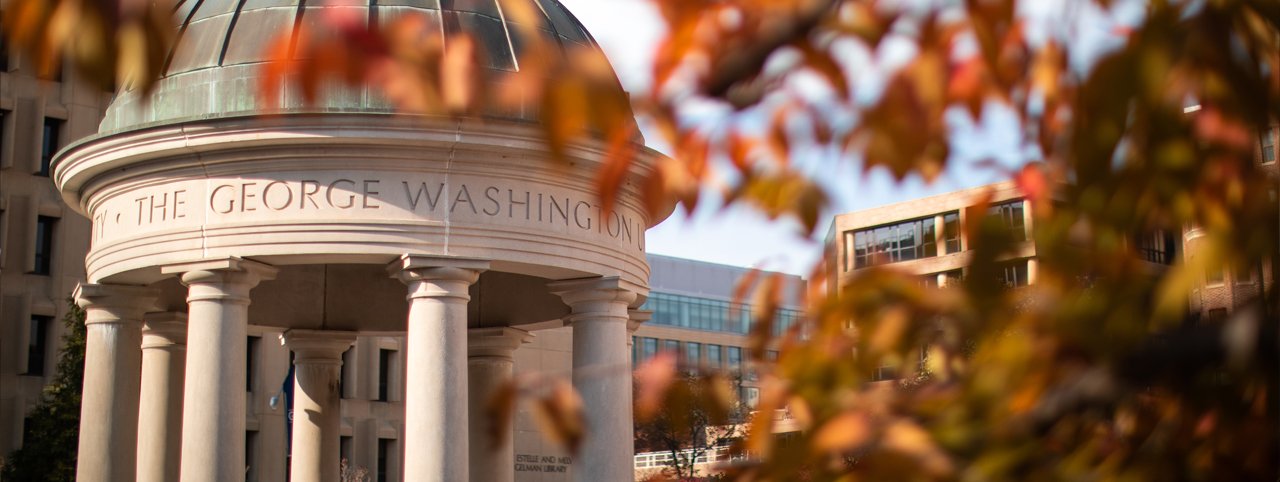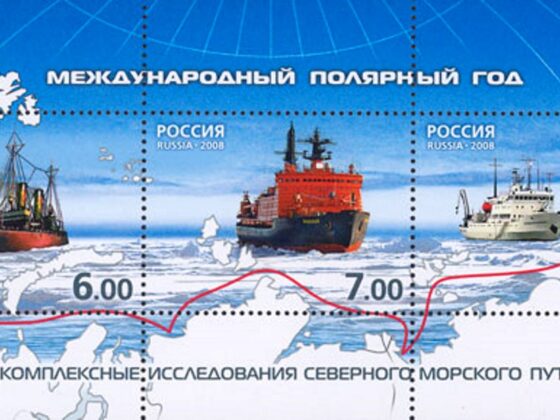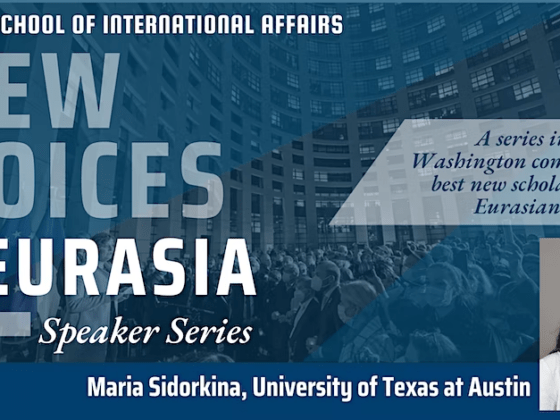Thank you for joining us! Stay tuned for the policy memos and event videos.
Friday, September 30th
The Elliott School of International Affairs, 1957 E St. NW, Washington DC or Online
9:00 am-5:00 pm
The PONARS Eurasia Fall Policy Conference convenes international experts from North America, Russia, Ukraine, and other parts of Eurasia for a series of panel discussions. This hybrid event offers an opportunity to hear from experts on important shifts in international affairs both locally and globally in response to Russia’s full-scale invasion of Ukraine.
Conference Agenda
9:00 am Opening Remarks and Coffee
9:00-10:45 am Panel 1: Russia’s War on Ukraine
Location: Elliott School, Lindner Commons, Room 602
Polina Sinovets, Odesa Mechnikov National University
“The Nuclear Weapons Factor on Interstate Politics in the Russia-Ukraine War” (Published)
Olexiy Haran, Kyiv Mohyla Academy, (co-authored with Petro Burkovskyi, Democratic Initiatives Foundation, Ukraine)
“The ‘Nuclear Option’: Is a Ukrainian Victory More Detrimental to the West than a Stalemate?”
Volodymyr Dubovyk (virtual), Odesa Mechnikov National University
“Ukraine-US Relations in Times of Big War: The Ultimate Test of the Strategic Partnership”
Tetyana Malyarenko, National University Odesa Law Academy
“The Changing ‘De-facto State Playbook’: From Opportunism to Strategic Calculations” (Published)
Discussant: Melinda Haring, Deputy Director, Eurasia Center, Atlantic Council
10:45-11:00 am Coffee Break
11:00-12:45 pm Panel 2: Russian Strategies and Consequences
Location: Lindner Commons, Room 602
Susanne Wengle (virtual), University of Notre Dame (co-authored with Vitalii Dankevych, Zhytomyr National Agroecological University, Ukraine)
“Russia’s War on Ukrainian Farms” (Published)
Adam Stulberg, Georgia Institute of Technology (Georgia Tech)
“Deciphering Russia’s Playbook: Lessons from the Lead Up to Putin’s War in Ukraine”
Mariya Omelicheva, National War College
“United We Stand? How Russia’s ‘Soft’ and ‘Smart’ Power Shaped Countries’ Positions on Moscow’s War in Ukraine”
Maria Snegovaya, Georgetown University
“Fighting Yesterday’s War: Soviet Influences in Putin’s Foreign Policy”
Discussant: Nigel Gould-Davies (virtual), Editor, Strategic Survey; Senior Fellow for Russia and Eurasia, International Institute for Strategic Studies
12:45-1:45 pm Lunch
1:45-3:00 pm Panel 3A: Russia’s War at Home
(Breakout Session) Location: Lindner Commons, Room 602
Jean-François Ratelle, University of Ottawa
“The North Caucasus and the Russian War in Ukraine”
Margarita Zavadskaya, University of Helsinki, Finland (co-authored with Emil Kamalov, EUI, Italy; Ivetta Sergeeva, EUI, Italy; and Nika Kostenko EUSP, Russia)
“Russia’s 2022 Anti-War Exodus: The Attitudes and Expectations of Russian Migrants” (Published)
Ivan Kurilla (virtual), European University at St. Petersburg
“Old Divisions, New Arguments: How Our Answer to the Question ‘Do Russians Support the War?’ Reflect Our Biases”
Discussant: William Pomeranz, Director, Kennan Institute, Woodrow Wilson Center
1:45-3:00 pm Panel 3B: Central Asia in the Shadow of War
(Breakout Session) Location: Room 505
Emil Dzhuraev, Soros Foundation-Kyrgyzstan
“Putin’s Language of the War and Central Asian Neutrality”
Pauline Jones, University of Michigan, and Regina Smyth, Indiana University
“The Future of Kazakhstani-Russian Relations: Public Opinion and the CSTO”
Shairbek Dzhuraev, Crossroads Central Asia, and Eric McGlinchey, George Mason University
“What Does Russia’s Invasion of Ukraine Mean to Central Asia?”
Discussant: Paul Stronski, Senior Fellow, Russia and Eurasia Program, Carnegie Endowment for International Peace
3:00-3:15 pm Coffee Break
3:15-5:00 pm Panel 4A: The Caucasus Between Russia’s War and Its Own Conflicts
(Breakout Session) Location: Lindner Family Commons, Room 602
Alexander Iskandaryan, Caucasus Institute, Armenia
“The War in Ukraine and the Reformatting of the Post-Soviet Space”
Sufian Zhemukhov, The George Washington University
“Abkhazian and South Ossetia: Second-order Effects of the Russia-Ukraine War”
Anar Valiyev, ADA University, Azerbaijan
“Two Years After the Karabakh War: Can Azerbaijan and Armenia Reach a Peace Agreement Amidst the Ukrainian Crisis?”
Kornely Kakachia, Georgian Institute of Politics, Georgia, (co-authored with Bidzina Lebanidze, Friedrich Schiller University Jena, Germany)
“Georgia at the Crossroads: Paths of Risk and Resilience” (Published)
Discussant: Mary Glantz, Senior Advisor, Russia and Europe Center, US Institute of Peace
3:15-5:00 pm Panel 4B: Shifting Global Geopolitics
(Breakout Session) Location: Room 505
Peter Rutland, Wesleyan University
“Why the West Is Losing the Global Information War Over Ukraine, and How It Can Be Fixed”
Ryhor Nizhnikau, Finnish Institute of International Affairs (co-authored with Arkady Moshes, Finnish Institute of International Affairs)
“Russia’s War and Belarus’s Ravaged Sovereignty” (Published)
Mark Kramer, Harvard University
“Russia, the Balkans, and Security in Europe”
Pavel Baev, Peace Research Institute Oslo (PRIO), Norway
“Irrelevant Intrigues and Diminished Power Projection: Russia in Retreat from the Middle East”
Hilary Appel, Claremont McKenna College (co-authored with Boyang Liu, Claremont McKenna College)
“The Limits of the Russia-China Partnership after the Ukraine Invasion”
Discussant: Ambassador Eric Rubin, President, American Foreign Service Association











